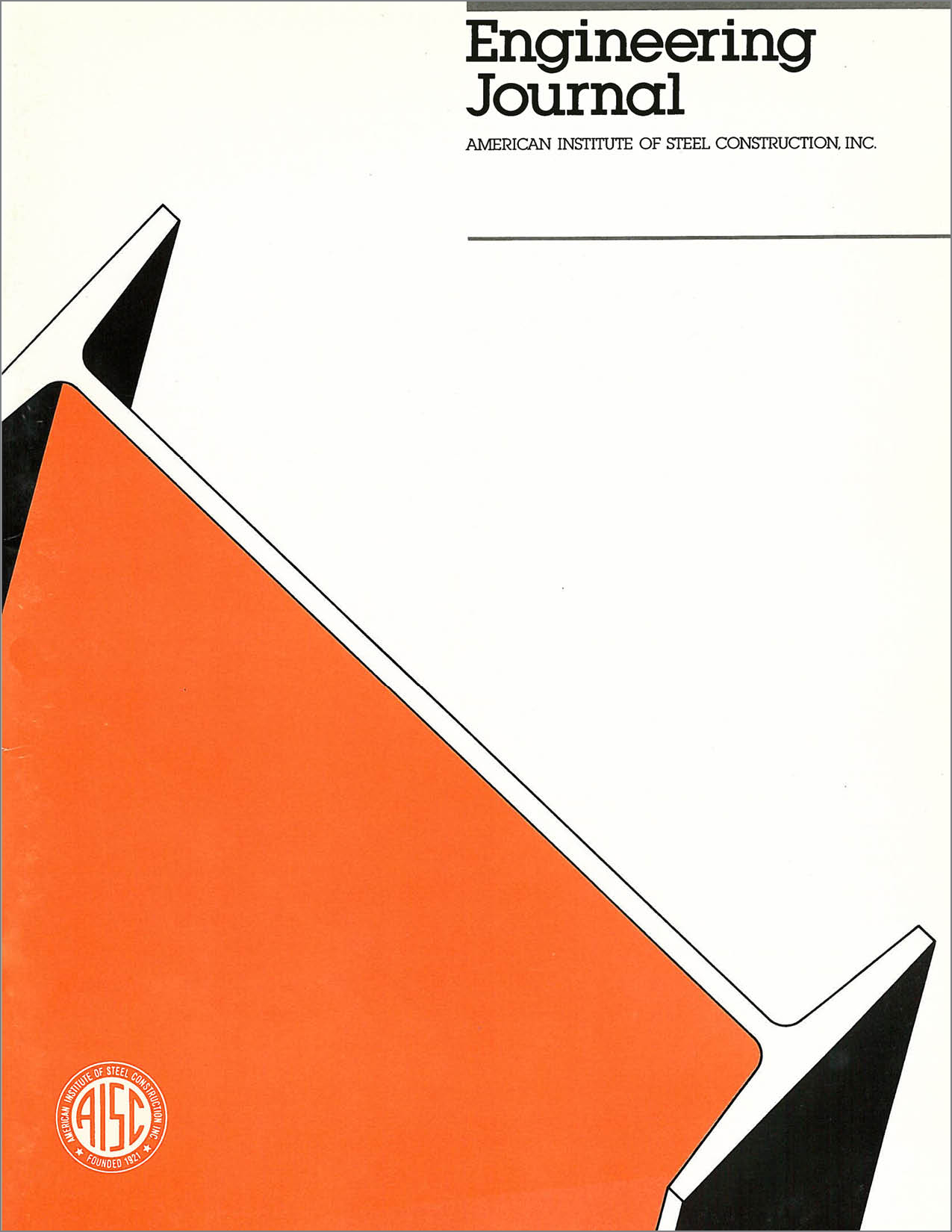Unbraced Frames with Semi-Rigid Composite Connections
DOI:
https://doi.org/10.62913/engj.v27i1.535Abstract
The benefits of semi-rigid connections are well known and much has been written about their use in braced frames and in Type 2 construction. One of the reasons these methods are not being used frequently by designers is that most semi-rigid connections are highly nonlinear, and analysis of the behavior of frames using them is difficult. One type of connection which may be able to overcome this difficulty is the semi-rigid composite connection. This is a connection made from a typical pinned end connection (e.g., seat angle and web clips or double web angles) and continuous slab reinforcement across the connection. Tests on the connection with seat angle (Fig. 1) by the authors have shown this connection type has a high degree of linearity in the service load region and that its ultimate capacity is easy to predict. This paper describes a design procedure for unbraced frames utilizing semi-rigid composite connections such as those described above. Two design examples, one for a four-story structure and one for a ten-story structure, and comparisons of their behavior with that of rigidly designed frames are included.

